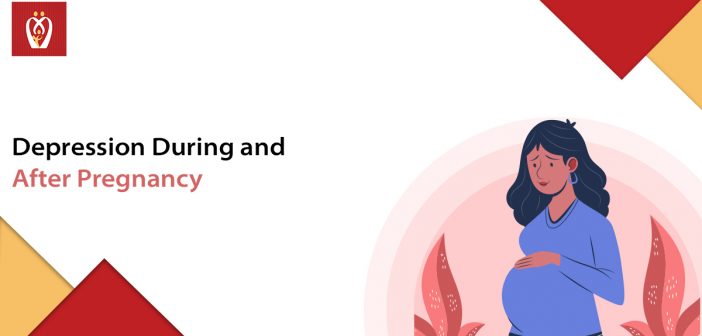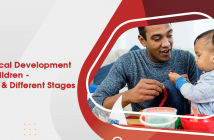Introduction
Motherhood is one of the greatest gifts that a woman usually receives. However, this gift doesn’t come without its challenges. A common but not commonly discussed depression. One may assume that with such a positive feeling, why would one feel depressed. Legitimate question, however, while asking such a question, one usually overlooks the fact that the to be mother is a woman too.
She has emotions, she has expectations and pregnancy comes with its set of hormonal upheavals. In such a situation, psychological or mental pressure is an obvious occurrence. In this blog, we will discuss how pregnancy leads to depression.
What causes depression during and after pregnancy?
One might get depressed for a variety of reasons. During and after pregnancy, the body goes through a lot of hormonal changes as a woman. For example, the feminine hormones oestrogen and progesterone are produced at considerably higher levels in a pregnant woman’s body. However, within the first 24 hours following childbirth, these hormone levels rapidly return to pre-pregnancy levels.
In the same way, menstrual hormone fluctuations can cause comparable symptoms during and after the period; these hormone changes may cause depression. A decrease in thyroid hormones generated by the thyroid gland is another probable explanation of similar symptoms in some women after pregnancy (located in the neck).
These hormones aid in the regulation of the body’s energy usage. Low thyroid levels can lead to irritable or sad moods, sleep and concentration issues, and weight gain. When these physical changes are combined with the dramatic changes in the mother’s life—the natural feelings of being overwhelmed with new responsibilities, pressures to be a “great” mom, a sense of loss about the life that the lady had before—puts the female at risk of suffering from perinatal/postpartum depression, or, in rare cases, postpartum psychosis too.

pregnancy
The different kinds of depression during and after pregnancy
Depression during and after pregnancy is usually classified into the following categories:
(1) the baby blues,
(2) perinatal depression (which includes both prenatal and postpartum sadness), and (3) postpartum psychosis.
1.The Baby Blues
In the days following childbirth, many mothers experience what are commonly called the baby blues. In addition, 50 percent to 80 per cent of all moms are said to experience “postpartum blues” after giving birth. The baby blues are typically only transitory for most women, lasting a few days to two weeks following delivery. If one is suffering from the baby blues, one could:
- Experience mood swings
- Feel depressed, worried, or overburdened
- Has weeping spells
- Loses appetite
- Has problems sleeping
The symptoms are typically mild, and there are effective treatments available:
- Make sure that the new mother gets enough rest. It is advisable to take a snooze whenever the child does.
- One should not put too much strain on oneself. Who could do everything on their own after all? The baby is not the female’s responsibility alone and hence it is absolutely okay to ask for help.
- Do not spend too much time alone for it may result in overthinking
- Seek support and assistance from the spouse or partner, family, and friends.
- Join a new mother’s support group.
- Exercise as much as the body allows for it will release endorphins that will help uplift the mood
-
Perinatal Depression During Pregnancy (encompassing prenatal and postpartum depression)
Prenatal depression (during pregnancy) and postpartum depression are referred to as perinatal depression (in the first year following childbirth). Perinatal depression’s symptoms are more intense and persist longer than “baby blues.” It affects around 1 in every 5 women.
Pregnant and new moms who are overwhelmed, irritated, nervous, teary, or sad should not be ashamed or silent about it. Instead, they should speak with their doctors as soon as possible to obtain the help — and, in some circumstances, therapy — they require. Perinatal depression symptoms can range from moderate to severe. Some major symptoms include
- Oversleeping or not sleeping at all
- Emotional numbness
- Concentration, memory, and decision-making difficulties
- Loss of interest in well-being
- Lack of interest in daily activities
- Withdrawal from friends and family
- Waning of sexual desire or response
- A deep feeling of incompetence or failure
- Extreme mood swings
- Excessive or insufficient care for the infant
- Expectations that are too high and a demanding approach
- Making meaning of things is difficult.
Perinatal depression can be treated successfully. Talk therapy, or a combination of antidepressant medication, talk therapy, and supportive community services, is the most common form of treatment. Despite its efficacy, many women do not seek therapy. In addition, some people are afraid to use antidepressant drugs because they are concerned about the health risks to their baby.
- Postpartum psychosis is an uncommon and severe form of depression that affects a tiny percentage of women (1 or 2 in 1,000). Women who have been diagnosed with a bipolar illness or schizoaffective disorder are more likely to experience postpartum psychosis. Postpartum psychosis symptoms usually appear within the first four weeks following delivery and include:
- Extreme perplexity
- Hopelessness
- Not able to sleep even when exhausted
- Refusing to consume food
- Do not trust other people.
- Seeing or hearing things that aren’t there.
- Suspicions that you, your baby, or others may be harmed.
Postpartum psychosis is a transitory condition that may be treated with expert assistance, but it is a medical emergency that demands prompt attention.
Conclusion
During pregnancy or after the birth of a child, any woman might feel sad and a major reason for this is the hormonal upheaval that the body is going through. In such a situation, you may feel tired or not feel like participating at all. However, this doesn’t mean that you are any less of a mother. In such a situation, seeking therapy or asking for help will not make you sound weak.
It will, however, make you sound aware and responsible. You have given birth, your body has gone through so many changes and hence, if you are accepting that you may need help- it just makes you even stronger than the strong and beautiful woman you anyway are!








1 Comment
Pingback: 10 simple activities to help your preschooler with cognitive development - Nurturey Blog